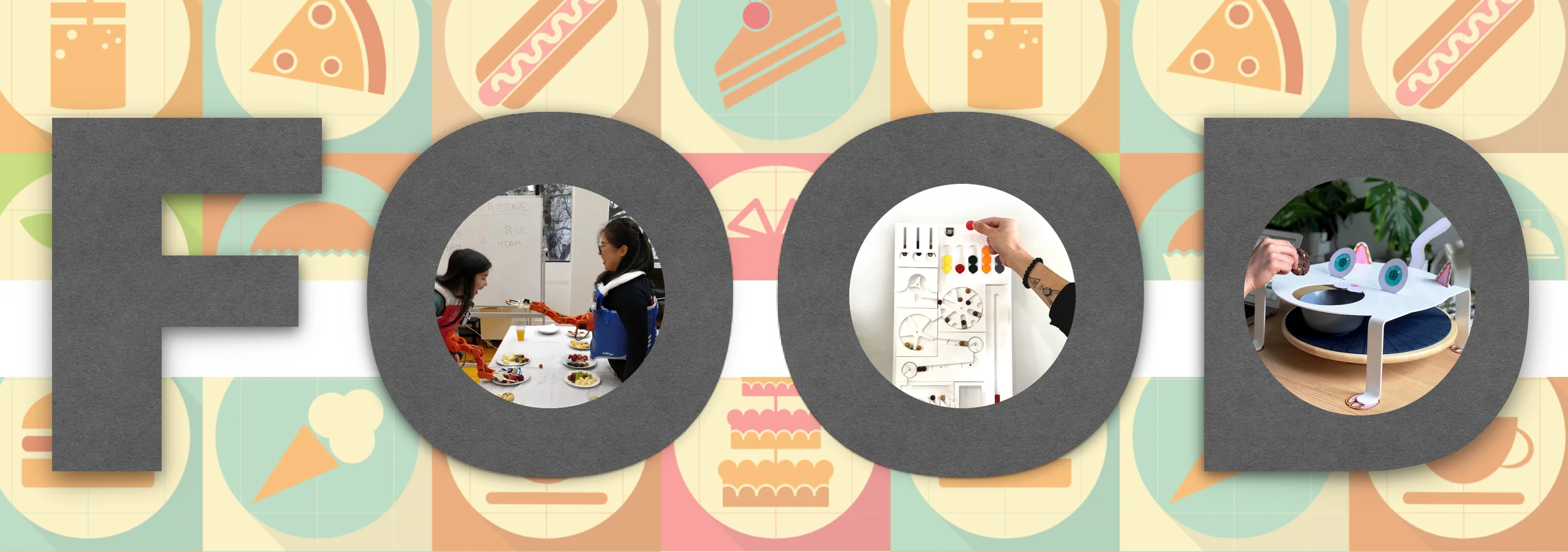Designing at the intersection of Food and Technology
Studio developed and taught by me in Sem 1 & 2, 2023

Food plays a crucial role in the lives of all living bodies, but its importance is now more crucial than ever, as our contemporary concerns expand with technological, environmental, and social disruptions, ranging from food security to agricultural sustainability to rising obesity and diminishing commensality. In these challenging yet interesting times, there is certainly plenty of onus to think and reflect before designing technology-mediated ubiquitous food futures and shaping a better relationship with our environment and humanity.
This studio is specifically designed to inspire creative convergence of design and technology to disrupt rudimentary thinking around food and wellbeing. Taking a hands-on approach to learning, we will cover and critique existing design patterns within Human-Food Interaction space and learn about different theoretical concepts that underpin them. Following the Research through Design practice, students will then explore “what if” and “why not” scenarios, to come up with innovative and provocative ideas for future foodscapes that challenge the status quo. There will also be a strong focus on acquiring skills of critical reflection wherein students will reflect on the intended and unintended consequences of each theirs and existing designs.
This studio is a great opportunity for students to learn about state of the art research in the food tech space, to practice their existing skills on challenging problems and to acquire new skills to grow as a competent designer. The focus is on using technology in service of compelling creative expressions. This requires working to develop basic computational literacy, creative idea generation, and a critical perspective on digital practices. There is no specific prerequisite for taking this course but knowledge in prototyping tools and techniques from handcraft to Figma to Arduino are certainly valuable. The more it involves your hands as well as your minds, the better.
Week 1 Class 1: Welcome
Topic 2: Design Thinking
Topic 3: Designing a case study
